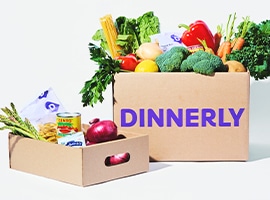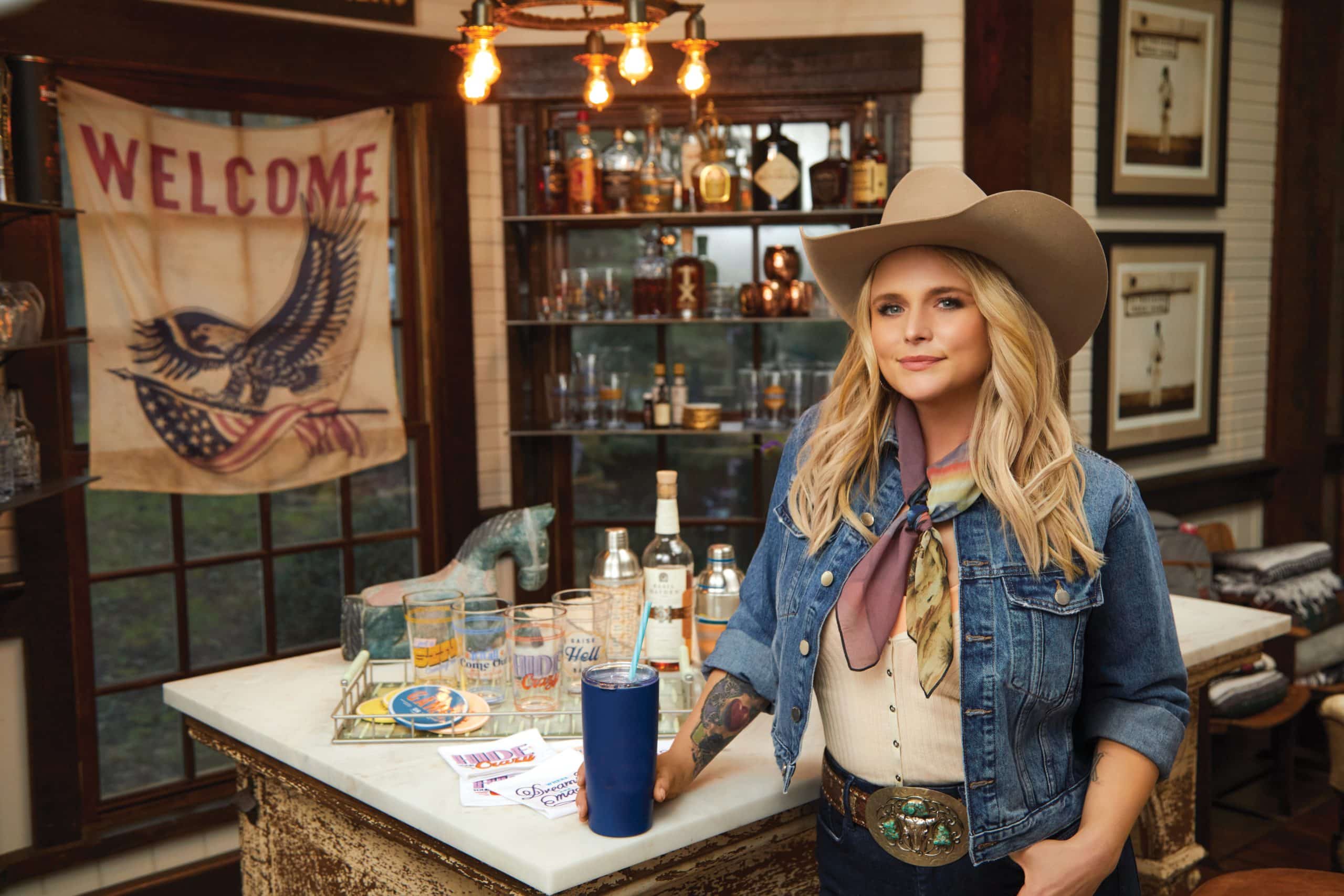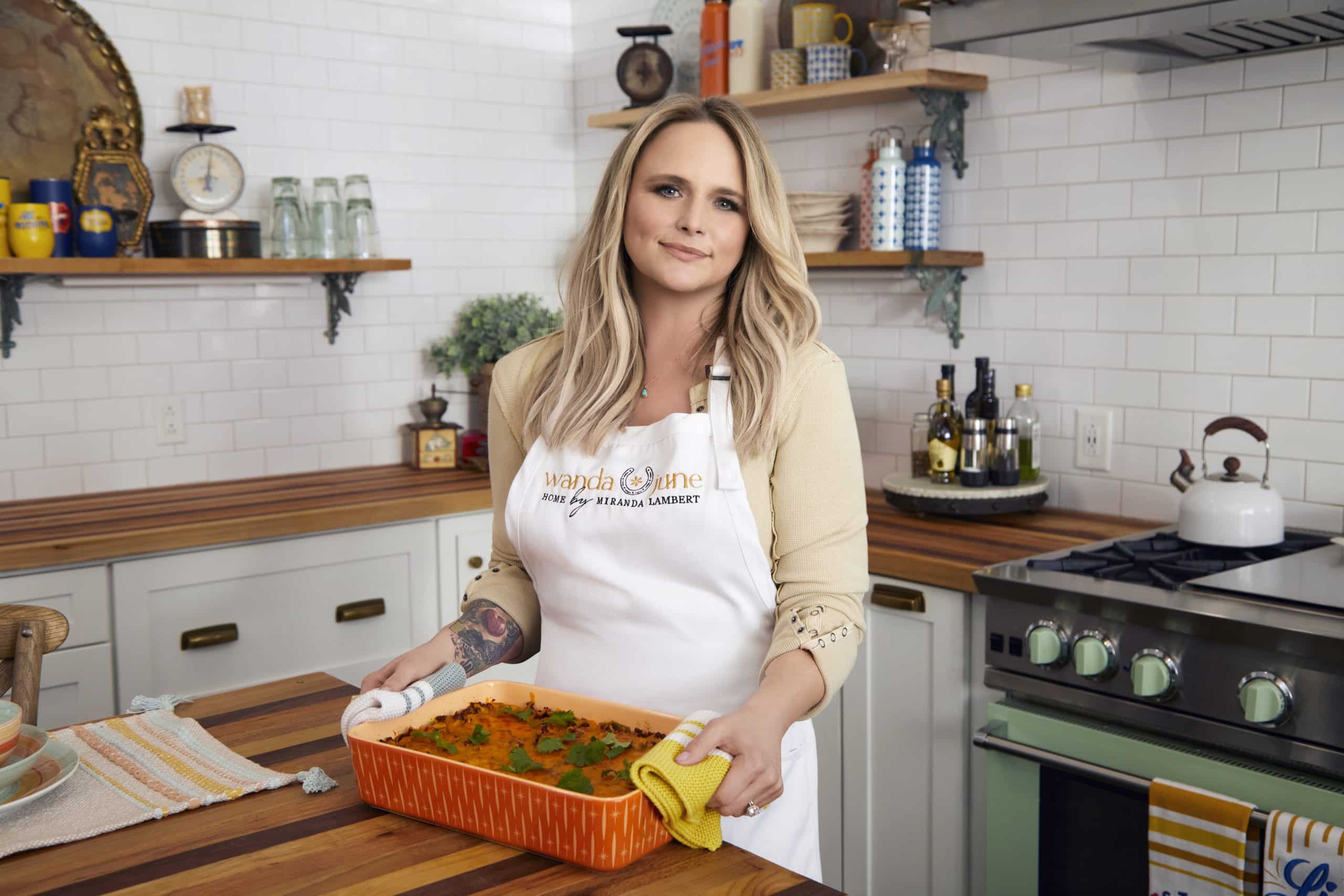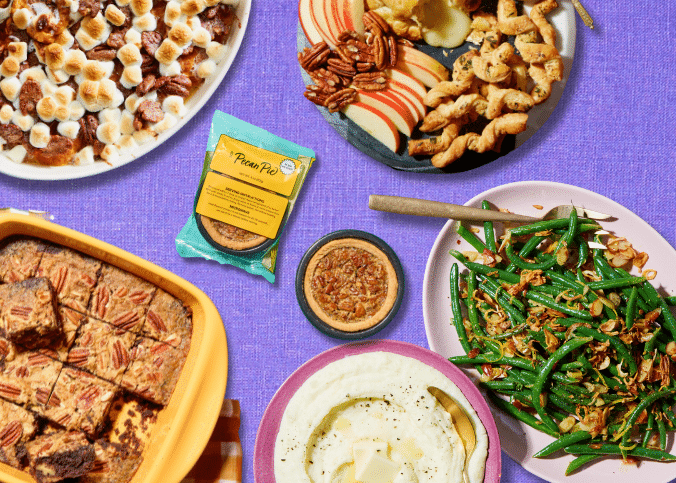New York Times bestselling cookbook author. Host and producer of the Keep Calm and Cook On podcast. Member of God’s Love We Deliver’s Culinary Council and the Kitchen Cabinet Advisory Board for the Smithsonian’s National Museum of American History. These are just a handful of Chef Julia Turshen’s accolades and accomplishments.
Notable as she is, Julia’s favors approachability over formality. Her enduring food philosophy is that cooking doesn’t have to be complicated to be good. We spoke to her about why comfort food gets a bad rap, the happy/fat binary, holiday hosting tips, and her latest cookbook, Simply Julia. Here’s what she had to say.
You’ve written four cookbooks, all with a focus on comfort food over fancy pants recipes. Is there an origin story on this preference?
I’m a home cook and have always written my recipes from this perspective—and I want to be comfortable at home.
Comfort food is often a euphemism for “unhealthy food that I eat when I’m sad.” What is it about comfort food that makes us think “unhealthy?”
The idea that being comfortable, or comforted, can only be in response to feeling down is so limiting. We all deserve to feel as comfortable as possible in our kitchens and our bodies at all times.
You wrote a beautiful essay in Simply Julia where you talk about overcoming the happy/fat binary. What is that binary and how do we conquer it?
One day I realized I had only ever felt two things in my life: happy or fat. Not only is fat not actually a feeling, but I had also equated it with all feelings other than happy. This meant that I was using my discomfort with my weight and body to shield myself from so many feelings, plus I thought it was impossible to be fat and also feel happy at the same time.
For those struggling to overcome this, know first and foremost that wow wow wow you are not alone.
Second, think about who you go to and look at for guidance, advice, and support. Are any of those people or institutions equating healthy with skinny? Are they telling you there’s something wrong with you just because of the size of your body? If so, it’s worth pausing to assess those relationships. Also, follow the money— are any of those people or institutions trying to sell you something? Get curious about that.
Third, this might sound silly, but it’s helped me tremendously. Buy a poster (or download one on your computer) that lists all of the feelings (like this one). Whenever you have the thought “I feel so fat,” go look at the poster and figure out what you’re actually feeling.
Thank you for sharing that. Hard pivot… Do you have any favorite kitchen tools that you’d recommend for our home chefs?
Metal tongs, a big wooden cutting board, a nonstick skillet, and a Dutch oven.
Chefs always seem to have smart tips and workarounds for common cooking challenges, like little “a-ha” problem-solvers. What are yours?
The pressure! Not everything has to be made from scratch. Also, a squeeze of lemon and a sprinkle of salt will make most things taste better.
In Simply Julia, you say that Kimchi is one of five ingredients that are always in your fridge. I’m guessing there are at least a few people who haven’t tried it yet. What would you say to trepidatious cooks/eaters to encourage experimentation?
I would say to always remember that something that feels unusual to you might be someone else’s most comforting, most familiar food. Some ingredients that I didn’t grow up with but I now find indispensable are kimchi, tahini, avocados, and hot sauce.
Do you listen to music while you cook? If you do, what’s currently on your playlist?
Oh yes! I usually put on reggae or I often listen to Maintenance Phase, my favorite podcast.
The holidays and all of their associated gatherings are coming up. What are your biggest considerations when cooking for a crowd?
I often serve a lot of things that can be made ahead and enjoyed at room temperature. It takes the stress away.
The conversation prompts chapter in Simply Julia is wonderful. What made you think to include this in a cookbook?
I included these because the best part of any meal is rarely the food—it’s the conversation. The food is just a way in.



